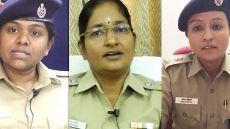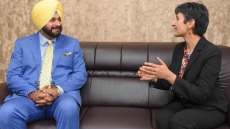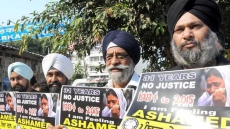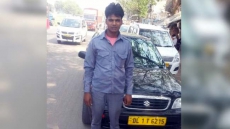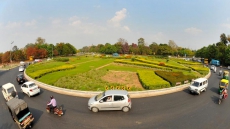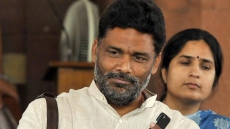Controversial arms dealer Abhishek Verma, a witness in a 1984 anti-Sikh riots case allegedly involving Congress leader Jagdish Tytler, on Thursday told a Delhi court that he was ready to undergo a lie-detector test if he and his family are provided round-the-clock security.
Verma, who was present during the hearing, said while Tytler had Z-plus security, he was getting protection only on the days of court hearing and he apprehended serious threat to his life as well as that of his wife and mother.
He, however, agreed to the suggestion given by the counsel for the victims in the court that he should be provided 24 hours security till the time he undergoes the polygraph test. "Here is a witness who is willing to depose against Tytler.
Witness protection is very important. Till the time his statement is recorded or lie detection test is conducted on him, he be given security round-the-clock so that he has no apprehension of grave danger to his life. "After conducting the test, the threat perception could be re-assessed," advocate Kamna Vohra and Prabhsahay Kaur, who represented riot victims, said.

Additional Chief Metropolitan Magistrate Shivali Sharma said she wanted to know the stand of the CBI's investigating officer (IO) on this issue and listed the matter for July 18 as he was not present today.
CBI prosecutor told the court that the IO has gone for a training session and would be available after two weeks. The court also asked Verma to give it in writing that he was willing to undergo the test if round-the-clock security is provided to him till the test was carried out and his threat perception be re-assessed after that.
Tytler had refused to undergo lie-detection test
Besides Verma, CBI has also sought Tytler's consent to undergo lie-detection test, which he has refused.
The court had on May 9 directed Tytler, who has been given clean chit by the CBI on three occasions, and Verma to give an "unambiguous" reply on whether they wanted to undergo lie-detection test.
It had held that the CBI's plea for obtaining their consent for the test was maintainable.
It had said if there were any conditions attached to the consent, Tytler and Verma should appear in person for clarification.
The CBI's move seeking permission to conduct polygraph test on Tytler and Verma came in pursuance to the court's December 4, 2015 order in which it was mentioned that the lie-detection test may be conducted, if required.

The case pertains to the riots at Gurdwara Pulbangash in North Delhi where three people were killed on November 1, 1984, a day after the assassination of then Prime Minister Indira Gandhi.
Tytler, who has denied any role in the riots, was given clean chit by the CBI thrice in the case, but the agency was directed by the court to further investigate the matter. The victims had filed a protest petition challenging the CBI's closure reports in the case.
The court had in December 2015 directed the CBI to further investigate the matter and decided to monitor it every two months to ensure that no aspect is left uninvestigated.
The agency had reinvestigated the case of killing of Badal Singh, Thakur Singh and Gurcharan Singh near the gurdwara after a court in December 2007 refused to accept its closure report.
The CBI has filed three closure reports in the case. Tytler had refused to undergo lie-detection test Besides Verma, CBI has also sought Tytler's consent to undergo lie-detection test, which he has refused. The court had on May 9 directed Tytler, who has been given clean chit by the CBI on three occasions, and Verma to give an "unambiguous" reply on whether they wanted to undergo lie-detection test.
It had held that the CBI's plea for obtaining their consent for the test was maintainable. It had said if there were any conditions attached to the consent, Tytler and Verma should appear in person for clarification.
The CBI's move seeking permission to conduct polygraph test on Tytler and Verma came in pursuance to the court's December 4, 2015 order in which it was mentioned that the lie-detection test may be conducted, if required. The case pertains to the riots at Gurdwara Pulbangash in North Delhi where three people were killed on November 1, 1984, a day after the assassination of then Prime Minister Indira Gandhi. Tytler, who has denied any role in the riots, was given clean chit by the CBI thrice in the case, but the agency was directed by the court to further investigate the matter.

The victims had filed a protest petition challenging the CBI's closure reports in the case. The court had in December 2015 directed the CBI to further investigate the matter and decided to monitor it every two months to ensure that no aspect is left uninvestigated. The agency had reinvestigated the case of killing of Badal Singh, Thakur Singh and Gurcharan Singh near the gurdwara after a court in December 2007 refused to accept its closure report. The CBI has filed three closure reports in the case.
